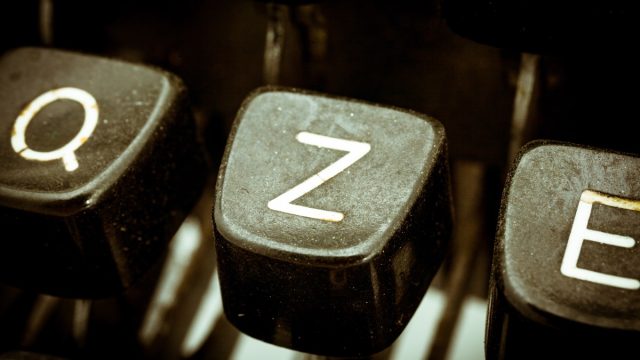Why the World Pronounces “Z” as “Zed” And Americans Don’t

In America, there’s only one way to pronounce the letter Z: zee, of course. However, head to England, Ireland, or pretty much any other English-speaking country, and you’ll find that most natives refer to the same letter as zed.
To understand this difference in pronunciation, you have to look at the origins of the English alphabet itself. As you can imagine, the British zed is the older of the two pronunciations, and it dates all the way back to the 1400s. The pronunciation stems from Latin and Greek, as both ancient languages have a similarly pronounced equivalent: zeta.
Whereas the more established zed has an etymology that makes logical sense, the reason why Z is pronounced as zee in the U.S. is a bit more pragmatic. This iteration of the last letter in the alphabet first appeared in Thomas Lye’s New Spelling-book in 1677, and it’s thought to have been changed in order to reflect the bee, cee, dee, ee, gee pattern that the rest of the alphabet follows. In the 1800s, the pronunciation really took off when Charles Bradlee wrote the famous alphabet song and included zee instead of zed to rhyme with me, essentially solidifying the newer pronunciation as the de facto diction for Americans.
One etymology enthusiast, Paul Anthony Jones, speculates on his blog that Americans may have adapted the more modern pronunciation “to make a stand—no matter how small it might seem—against British control” after the Revolutionary War, though it’s just as likely that colonists adopted the pronunciation because it was easier to understand.
So there you have it: When it comes down to it, the reason why Z is pronounced as zee in America is nothing more than convenience. And for more on the discrepancies between Americans and foreigners, check out these 10 American Words That Don’t Make Sense in the U.K.
To discover more amazing secrets about living your best life, click here to follow us on Instagram!